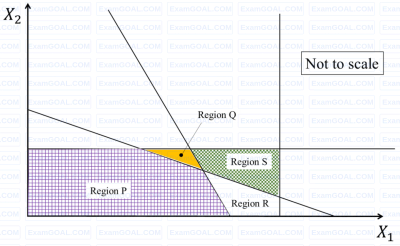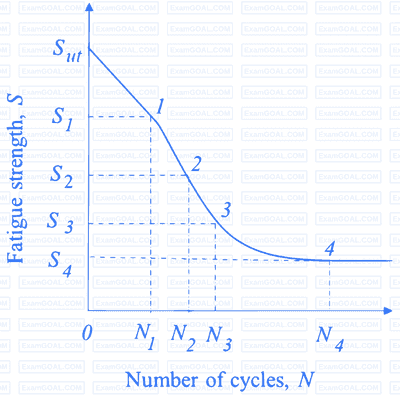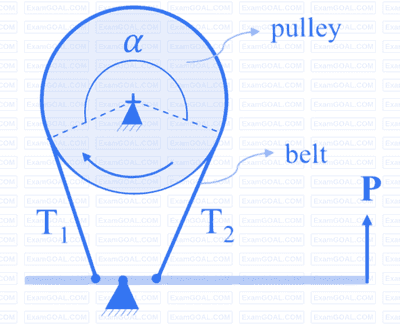Which one of the options given represents the feasible region of the linear programming model:
𝑀𝑎𝑥𝑖𝑚𝑖𝑧𝑒 45𝑋1 + 60𝑋2
𝑋1 ≤ 45
𝑋2 ≤ 50
10𝑋1 + 10𝑋2 ≥ 600
25𝑋1 + 5𝑋2 ≤ 750

A solid part (see figure) of polymer material is to be fabricated by additive manufacturing (AM) in square-shaped layers starting from the bottom of the part working upwards. The nozzle diameter of the AM machine is a/10 mm and the nozzle follows a linear serpentine path parallel to the sides of the square layers with a feed rate of a/5 mm/min.
Ignore any tool path motions other than those involved in adding material, and any other delays between layers or the serpentine scan lines.
The time taken to fabricate this part is ___________ minutes.
(Answer in integer)

The S-N curve from a fatigue test for steel is shown. Which one of the options gives the endurance limit?

The braking system shown in the figure uses a belt to slow down a pulley rotating in the clockwise direction by the application of a force P. The belt wraps around the pulley over an angle α = 270 degrees. The coefficient of friction between the belt and the pulley is 0.3. The influence of centrifugal forces on the belt is negligible.
During braking, the ratio of the tensions T1 to T2 in the belt is equal to __________. (Rounded off to two decimal places)
Take π = 3.14.
